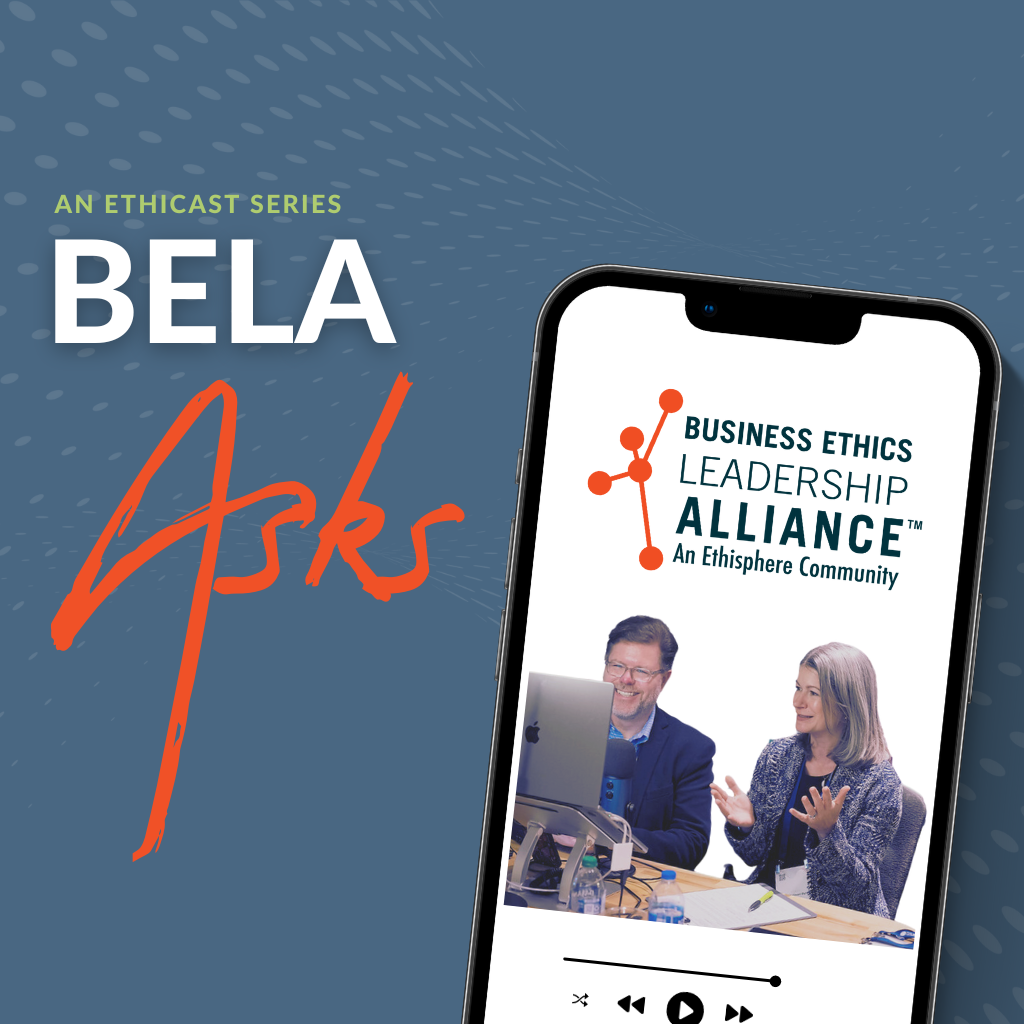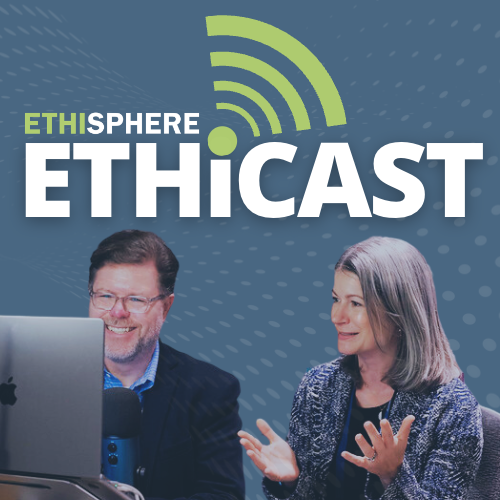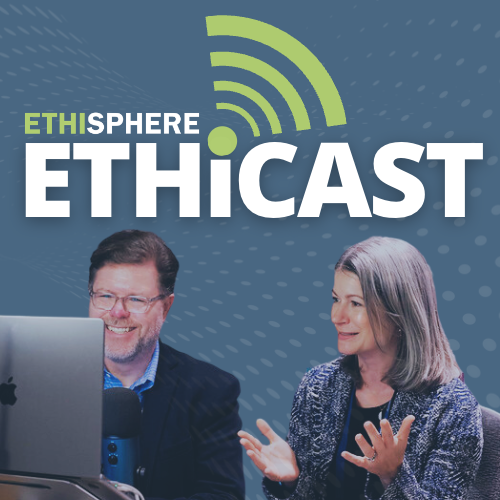Episode Transcript
[00:00:00] Speaker A: Hi, everyone. You've got questions and we've got answers. Welcome to another Bella Asks episode of the Ethicast.
The Business Ethics Leadership alliance, or bela, is a global ethics and compliance community that provides exclusive access to helpful data, benchmarking events and other resources to advance your ENC program. And with bella's concierge service, members can submit any question regarding ethics and compliance. And our internal experts will provide an answer, plus helpful resources with more information.
And while we invite everyone watching and listening to join bella, we also know that there is no competition in compliance. And that's why we're using this program to thematically respond to high level questions from the BELA community for the benefit of ENC teams everywhere.
And joining us once again to answer those questions is Bella chair Erica Salmon Byrne. Erica, it's so good to see you again. Thank you for returning to the show.
[00:01:03] Speaker B: Oh, Bill, this is like my favorite thing that I get to do on a weekly basis is come back and answer these questions. So I'm delighted to be here.
[00:01:11] Speaker A: Well, my next question for you is a speak up question and it reads, how do I check for post investigation or post survey retaliation?
[00:01:20] Speaker B: So, Bill, first off, I this is becoming a bit of a trend with our BELLA members where we're getting these incredible compound questions.
So, you know, my junior high English teacher hated compound sentences and you know, would, would, would always make me break them into, into two. But I love a compound question. So.
Because really what this question is getting at, if you listen to what the person is asking, is they're concerned about retaliation possibilities in two places, right? One is post survey. So that's fascinating because what that could potentially mean is they're dealing with either investigation or either rather engagement surveys or culture surveys where there's a possibility that people think that the survey is not anonymous, right? Where the company is doing something to potentially figure out who left the nasty comment about the CEO. And look, we have seen this, right? We just have to go to the Barclays CEO whistleblower issue from a couple of years back where, you know, you actually had a CEO try to unmask a whistleblower. So this stuff happens.
But it's very interesting to me that this is a Bella member that is thinking about the possibility of watching for signs of retaliation both after, you know, concerted survey work, like a culture survey or an engagement survey, and then also post investigations because we don't always think about all of the other places where employees could potentially be be running into negative consequences for having the courage to share their opinion or you know, speak their, speak their mind.
So thinking that through, you know, the kinds of things that we end up thinking about when it comes to watching for signs of retaliation. And we do have up to date data on this in the sphere because we just of course switched the data year. So I can tell you that, you know, of the six options we have in this, in this question, most companies are using at least three. So it's important not to have too much reliance on any one mechanism to check for somebody being potentially exposed to retaliation. So you might, for example, be very reliant on a manager. Makes total sense. We know that managers are often involved in allegations of retaliation and a manager is often the very best person to prevent any kind of retaliatory behavior. So you might be doing things to remind managers of what is and is not expected, not only during the investigation, but after the investigation is closed. You probably should, for known reporters, be keeping an eye on changes in job status. Does this person suddenly go from being a high performer to getting bad performance reviews? Might be something to dig into. Does this person suddenly go from being an indispensable member of the team to on a RIF list? Might be something to dig into. Right. So those kinds of things are pieces of information you as a compliance team can get your hands on.
But the other thing I will say for the, for the post investigation piece in particular is if it's a known reporter and they have developed a rapport with the investigations team, just give them a call.
Right. We see this practice all the time inside of organizations that are part of the Bella community, where three, four, five months after an investigation is closed, the person from the investigations team just drops them a quick call and says, just wondering how you're doing, what's going on, how's the team?
You know, particularly if, like so many investigations, the person is continuing to work with the person that they raised the concern about. Right. There's a, there's actually, it was interesting a couple years ago we saw a huge movement to pull principles of restorative justice into work environment situations so that people could start to think about how to take a team post investigation and get them to a place where they can continue to work together.
And that's particularly the case anytime that you are talking about a team where there is a, you know, a very specialized skill set. So if you have nuclear engineers, right, or you have rocket scientists, you know, groups in base, you know, in professional sports, this is a big, this is a big concern, right? How do we get people to a place where they're comfortable raising their hand because they know that they won't face negative consequences as a result of having raised their hand. And then make sure that we've really created that environment where we can continue to see employees speak up. So kudos to the Bella member for thinking about this, for it being something that's on their radar screen, for thinking about those kinds of places in the employee experience cycle where somebody could potentially run into a potent, into a retaliation issue. Because we just saw the EEOC released Here in the US their data on 2024 charges and retaliation is still the most commonly charged behavior at the EEOC. It outpaces harassment, discrimin, etc. It really is, you know, it is something that employees do, unfortunately, experience. So making sure you're monitoring for it and looking for the places where you can get a sense it's happening. It's a, it's a good, it's a good thing to have on your, on your, your work plan when you have.
[00:06:21] Speaker A: A situation where, you know, despite all best efforts on the part of the system, you still know who's saying something and what they're saying is something that really strikes you to the core.
What advice do you have for managers and leaders to have to somehow have that pause and to stop and to not go into retaliation mode, especially when you know who is making the comment.
[00:06:43] Speaker B: Yep, it's, and it is such a human instinct, Bill, you know, to both, both to, to have that, that moment of, you know, being stung by what someone has drafted.
But, but also to want to know who wrote this. Right. Who wrote this? And, and that's part of the reason. And you're, you know, you're quite on the, on the verbatim comments in particular. You're quite right. Like, like, you know, it is, we all have a voice that can show up in our writing and there are certain catchphrases that if I put them in an email, even if I don't sign the email, you're going to know that it came from me.
So I think you have to talk to your leadership team before you share verbatims and, and, and have that conversation that requires that, that pause to say, look, information is a gift.
Sometimes it's a gift you want to throw back in the face of the person who's giving it to you.
But if you can, if you can divorce your ego from it, information is a gift. And that is the work as a, as a people leader to be able to say, I am being given this information.
Because the person who is giving it to me, wants me to do something with it.
Now, I may or may not end up doing with it what they want me to, but I am being offered this because there's no survey on the planet that requires you to fill in a verbatim, right? The verbatims are always optional. And so if somebody's taking the time to write something into the comment box of a survey, take a breath, right?
Set aside the ego pause, your knee jerk reaction to be like, well, that person just doesn't know what they're talking about.
And, and accept the information for what it is, which is an opportunity to improve.
And for, you know, Bill, for, for those who follow me on, on LinkedIn, they know that, that we've been running a book club here at Ethisphere and we just read the Right Kind of Wrong, the wonderful second book by Amy Edmondson. And she talks about this, you know, sort of very human desire to appear infallible because if we admit that we have made mistakes, we're going to get kicked out of the tribe.
And reminding yourself, you know, in that moment when you're getting that verbatim, that is challenging a decision you made or challenging a direction you're going in, or telling you that you don't know what you're talking about, you might not want the messenger, but you need to hear the message.
[00:09:26] Speaker A: Well, Erica, thank you so much for the extra answer on an extra special Bella Asks episode. We really appreciate it. Thank you so much for coming on the show.
[00:09:33] Speaker B: Oh, absolutely, Bill. It's 100% my pleasure. I'm always delighted to come back and to keep answering these wonderful questions that our community brings us.
[00:09:40] Speaker A: To learn more about Bella, visit ethisphere.com bella to request guest access to the member resource hub and and to speak with the Bella engagement director.
If you have a question that you would like answered on this program, contact the Bella Concierge service and we'll get to work on it for you.
This has been another Bella Asks episode of the Ethicast. We hope you've enjoyed the show. For more content like this every week, please subscribe to this program on YouTube, Apple Podcasts or Spotify. Thanks so much for joining us. And until next time, remember, strong ethics is good business.
[00:10:18] Speaker B: Sam.


